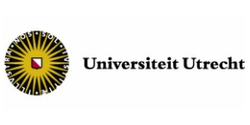PhD Position: Care and Responsibility for Animals and Their End of Life
Updated: 13 Apr 2025
The importance of care for animals is receiving increasing attention from society and the veterinary profession. This includes ethical and practical challenges related to end-of-life decision-making for animals. This project builds on previous research which has shown that decision-making can be complex and lead to situations where veterinary professionals and pet owners have different perspectives on what constitutes appropriate care. These differences in perspective can have consequences for the well-being of animals, pet owners, and veterinary professionals.
Your job
As PhD candidate in this project, you explore how animal owners and veterinary professionals navigate situations that may lead to conflicts surrounding end-of-life decisions for animals. The goal is to understand the underlying factors and provide insights into ways to prevent or manage these conflicts when they arise. The project consists of three key components:
- mapping existing views and approaches to these situations among veterinarians;
- conducting a document analysis of the application of relevant legal and professional frameworks;
- developing key principles for a professional guideline to support veterinary practitioners.
This PhD project is part of the research line 'The Ethics of Care in Human-Animal Relations', embedded within the Centre for Sustainable Animal Stewardship (CenSAS). CenSAS is an interdisciplinary team committed to fostering a sustainable and responsible coexistence between humans and animals.
Requirements:
- You have a degree in veterinary medicine.
- You have interest and experience in human-animal relations in socially relevant contexts.
- You have experience with, or a strong interest in, qualitative research methodologies.
- You are naturally curious about different perspectives on complex issues and are comfortable working with socially sensitive topics.
- You enjoy engaging with stakeholders and are approachable in your interactions.
- You are able to reflect on your own development and seek appropriate support when needed.
- You are motivated to connect scientific research with education and societal impact.
- You are interested in collaborating with relevant stakeholders as part the research project. For this, Dutch language proficiency and knowledge of the veterinary context are an advantage.
Salary Benefits:
- A position for one year, with an extension to a total of four years upon successful assessment;
- a working week of 38 hours and a gross monthly salary between €2,901 and €3,707 (salary scale P under the Collective Labour Agreement for Dutch Universities (CAO NU));
- 8% holiday pay and 8.3% year-end bonus;
- a pension scheme, partially paid parental leave and flexible terms of employment based on the CAO NU.
In addition to the terms of employment laid down in the CAO NU, Utrecht University has a number of schemes and facilities of its own for employees. This includes schemes facilitating professional development, leave schemes and schemes for sports and cultural activities, as well as discounts on software and other IT products. We also offer access to additional employee benefits through our Terms of Employment Options Model. In this way, we encourage our employees to continue to invest in their growth. For more information, please visit Working at Utrecht University.
36 - 40 hours per week
Yalelaan 2

